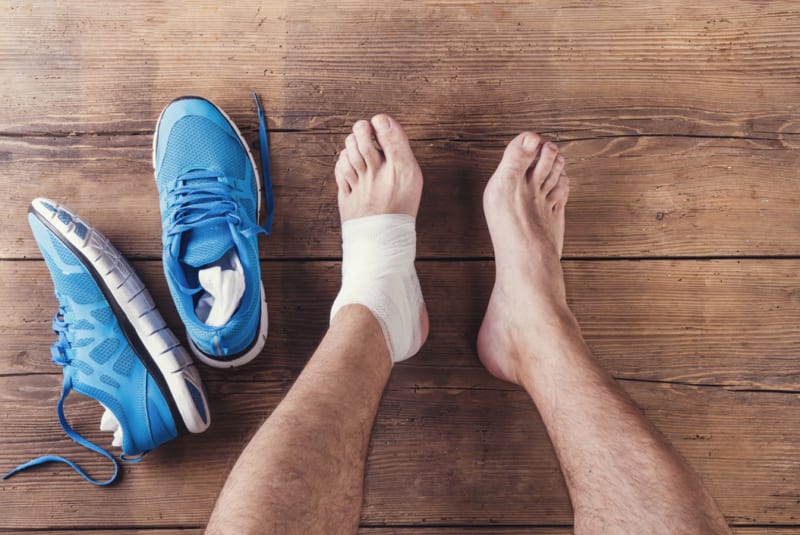Congratulations! You’ve crossed the finish line, earned your medal, and made it through one of the most physically and mentally demanding events out there. But marathon day doesn’t end at the finish line, what you do in the hours and days after matters just as much.
Whether it was your first marathon or your fiftieth, proper recovery is crucial. At Complete Physio, we see many runners who rush back into training too quickly and end up with preventable injuries. Here’s our physiotherapist-backed guide to help you recover properly and get ready for your next challenge.
1. Hydration First, Always
Fluid losses during endurance events can lead to dehydration, which may affect recovery and performance in subsequent days.
Why it matters:
- Dehydration can impair muscle repair and delay recovery.
- Warm race conditions, like this year’s London Marathon, make fluid loss more severe.
What to do:
- Sip water throughout the day
- Add electrolytes to your drinks (especially if you sweat heavily)
- Aim for light yellow urine as a hydration marker
2. Keep Moving, But Gently
Extended rest can lead to increased muscle stiffness and delay recovery. Gentle movement helps improve circulation and supports tissue healing.
Why it matters:
- Low-intensity movement helps reduce delayed onset muscle soreness (DOMS)
- Active recovery is shown to speed up the healing process compared to complete rest
Try this:
- Light walking, swimming or stationary cycling
- Gentle yoga or mobility work
- Avoid running for at least 5-7 days
Alex Quinn, physiotherapist and UK Athletics endurance coach, reinforces this advice: “You’ve got to really nail your recovery… and you need at least one, probably two weeks of rest/low intensity activity” to allow your body to rebuild post-marathon.
3. Fuel for Muscle Repair
Marathon running results in muscle fibre damage and depletion of glycogen stores. Proper nutrition supports tissue repair and restores energy levels.
Why it matters:
- Carbohydrates replenish energy stores
- Protein supports muscle regeneration
What to eat:
- Carbs: wholegrain rice, oats, potatoes
- Protein: lean meats, fish, legumes, tofu
- Anti-inflammatory foods: berries, oily fish, dark leafy greens
4. Skip the Deep Tissue Massage, For Now
While massage is popular post-race, deep pressure too soon after intense exertion may worsen inflammation.
Why it matters:
- Light-effort massage may reduce soreness without causing further trauma
- Wait at least 48-72 hours post-race for treatment
What to try:
- Gentle sports massage
- Foam rolling with minimal pressure
- Lymphatic drainage therapy
5. Try Contrast Showers
Alternating between warm and cold water may support muscle recovery by stimulating blood flow.
Why it matters:
- Contrast water therapy has been shown to reduce muscle soreness post-exercise compared to passive recovery
How to do it:
- Alternate 1 minute cold, 2 minutes warm
- Repeat for up to 10 minutes post-run
- Alternatively, try a warm Epsom salt bath
6. Delayed Stretching Works Best
Stretching immediately after intense exertion can worsen microtrauma in muscle fibres.
Why it matters:
- Muscles are more vulnerable to strain shortly after exertion
- Delaying stretching helps avoid worsening damage
Do this instead:
- Wait 6-8 hours before static stretching
- Focus on key muscle groups: calves, hamstrings, quads, glutes
- Use 30-second static holds, avoiding bouncing
7. Cross-Train Before Returning to Running
A short break from high-impact training allows your musculoskeletal system to fully recover.
Why it matters:
- Returning to running too soon increases risk of injury, particularly overuse conditions such as tendinopathy or stress fractures
Recommended timeline:
- Take a minimum of 7 days off running
- Engage in low-impact exercise (bike, swim, walk)
- Begin with walk-run intervals before resuming full sessions
Alex Quinn suggests: “It’s a good idea to use non-impact activities like cycling or cross-trainer sessions to maintain fitness while reducing load on the joints.”
8. Watch for Ongoing Pain or Swelling
Muscle soreness is expected, but persistent or worsening pain, swelling, or mobility issues should be assessed.
Warning signs:
- Pain that continues beyond 10 days
- Swelling, heat, or bruising
- Sharp or stabbing pain with movement
These may indicate soft tissue injury or joint inflammation and should be evaluated by a qualified physiotherapist.
9. Be Proud, And Patient
Marathon recovery takes time. Celebrate your achievement and give your body the rest it deserves.
Why it matters:
- Recovery supports long-term progress and injury prevention
- Mental recovery is as important as physical recovery
Alex Quinn reminds us: “The first goal should be to cross the line with a smile on your face… it’s such an achievement. You can always do another one.”
Ready for a Full Recovery Plan?
If you’re unsure how to structure your return or have concerns about pain post-marathon, we’re here to help.
Book a consultation with one of our expert physiotherapists for personalised guidance, a full-body assessment, or a tailored return-to-run plan.
Related blogs:
Don’t let pain hold you back, book now!


